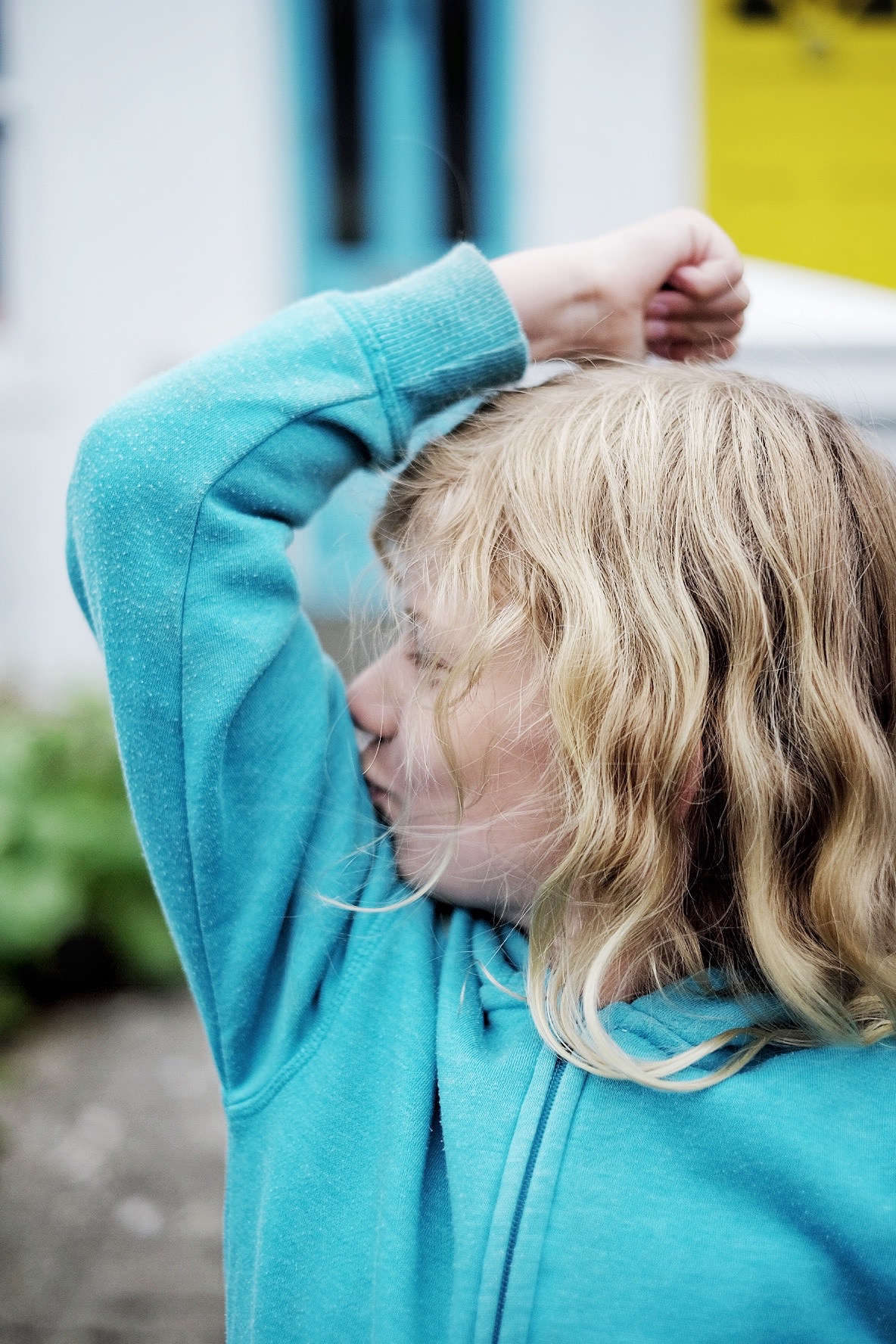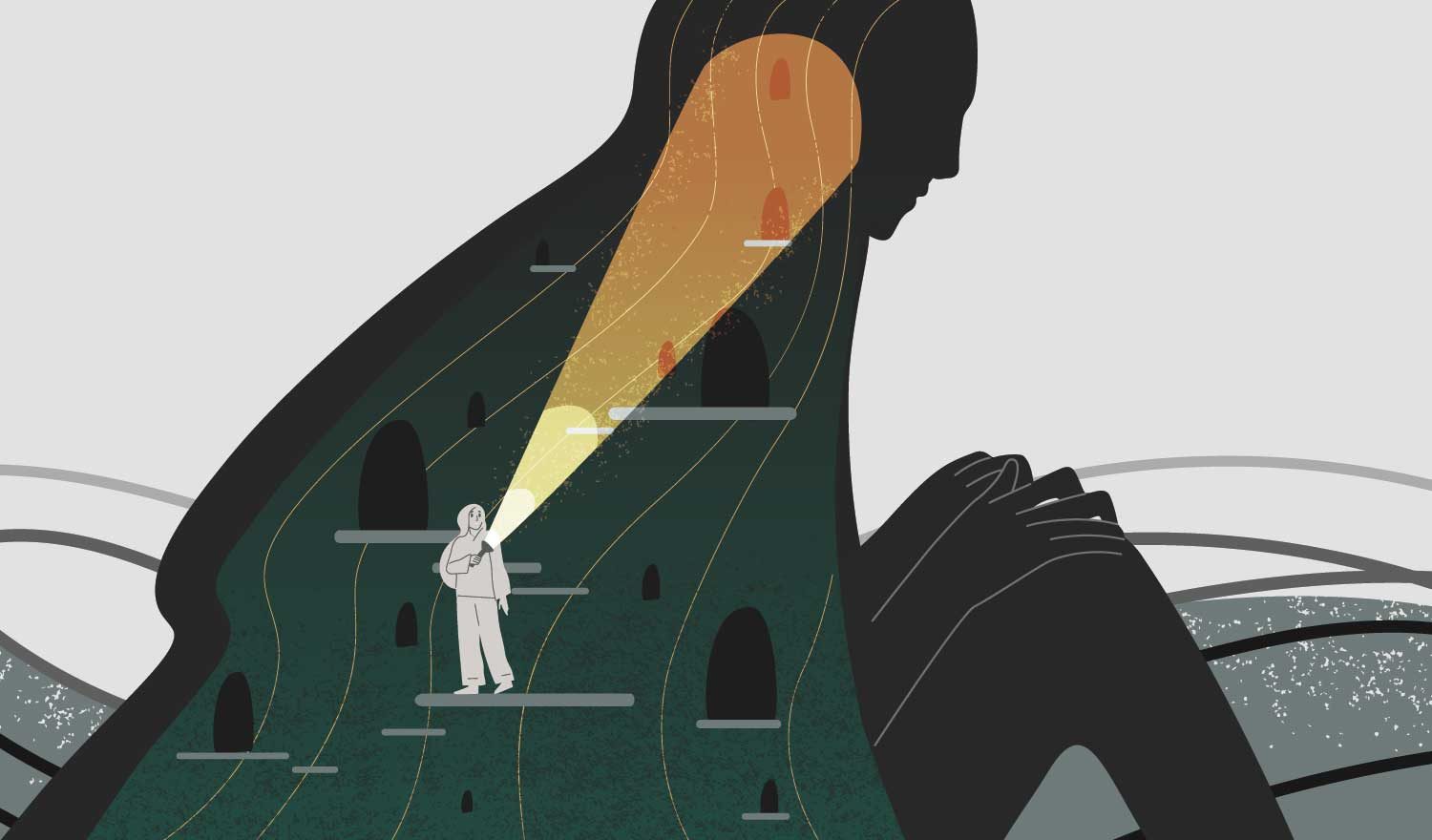A lot of people I talk to have a somewhat complicated relationship to their body, and so did I. A relationship that has been formed by our inner program of beliefs, moulded by society, domestication, media and culture. I’m not just talking about body image and what you think about how you look. That can be a big part of it, but the relationship to your body goes deeper than your skin, muscles and appearance.
We’re often relating to our bodies with feelings of frustration, shame or even anger, or we might be cut off from it, not listening to it’s signals and overriding with our minds. There might be different variations to this relationship but what they got in common is a non-acceptance and lack of presence with our bodies. This of course has consequences for if our bodies can thrive and develop its own intelligence. It has consequences for how in-tune we are with our ability to sense, feel and enjoy life in the vessel of our body.
How the mind is overriding the body
The thinking mind has been overly emphasized to the degree that we seldom spend time with the other parts of us. If we do see the other parts, they are seen as less than our thinking. The thinking is at the top of the ladder. So even when we are receiving signals from our bodies we go into analyzing and managing it with our minds.
We get a cold or the flu, and immediately we get frustrated or stressed: “I don’t have time to be sick right now”.
We’re standing in line and suddenly it’s hard to breathe. Immediately we start wondering what’s wrong with us and what kind of pills we need to take our if we should start with yoga, or maybe therapy, to get rid of that frightening body reaction.
Often we want the signals from our bodies to simply GO AWAY, stay quiet so we can go on with our busy lives. We don’t stop to listen to what the body is trying to tell us – and we definitely don’t trust it to carry the intelligence and power to heal. You might intellectually, but are you relating that way emotionally with your body, and acting from it? Most of us are not, and that’s because the relationship to our bodies is driven by our unconscious beliefs.

Your body is the container of your human experiences – senses, emotions, memories, thinking. But we have very little trust in that it’s doing what it should. Even though our heart is beating, lungs transporting oxygen to our bloodstream, cells are working and performing magic every second.
We use devices to monitor how our body is behaving so we can control and sculpt it the way our mind thinks it should be and look. On one end of the scale we monitor our daily calorie intake and push it into repetitive exercise routines with little pleasure or joy. On the other end of the scale, we don’t feed our bodies anything nutritious and don’t take it for walks or joyful movement. Both are different expressions of not feeling it’s worthy of love and trust.
So how did the lack of trust appear?
How mistrust and control are born
Let’s look at some of the beliefs that form the relationship with our bodies. Often we don’t look deep enough and we stay at the surface level, focusing on the beliefs we have formed specifically about our bodies. These are of course good to look at too, but the root to controlling and not trusting the body often goes much deeper and might not seem related at a first glance.
Whenever there’s a strong urge to control, there’s most likely a strong feeling underneath of not being safe, loved and wanted. The control is the protection, the solution to avoiding the pain. It could have developed something like this:
Situation: Feeling not seen, loved and accepted (anything from long time abuse to no-one being there that time when we cried)
Emotion: Fear, unsafe, abandoned, pain
Belief: There’s something wrong with me (have a look at this excellent video by Gary van Warmerdam where he talks about why our minds draw this conclusion)
Emotion: Shame
Protection: The feeling of shame is too painful, we need a strategy to avoid it.
Possible solution 1: Anger and defence. There’s nothing wrong with us! You are the problem! Life is unfair!
Possible solution 2: Control and manage through pleasing. Make sure that no-one ever thinks we’re doing something wrong and thinks we’re a bad person.
Possible solution 3: Control and manage through lone wolfing. We don’t need other’s anyway, they can’t be trusted. Let’s push them away and don’t let them in.
Possible solution 4: Withdraw and freeze. There’s no way I can solve this and do what’s right and expected of me. I don’t know what to do.
There are other examples of solutions, but these are some of the common.
Here’s when our relating to others and trust is formed, and it will also affect how we relate to our bodies. If we believe the world is not safe and people can’t be trusted, we will probably treat our body in a similar way. Our protection mechanisms of control and making ourselves fit an image of perfection, or build an armour to keep others away, will most likely be applied to our bodies as well. If we have a strong inner judge that thinks we should work harder and that we’re never enough, that might leave us trying to fit that image by a strict work out regime, or by simply giving up before we even get started before it feels hopeless.
Before you read on, look at the listed possible solutions above and imagine how they might look like in a person’s body posture. How might they have treated their bodies? Do you recognize yourself and your relationship to your own body in there?
Form a new relationship of acceptance, trust and love
If you can see how the control is a protection mechanism to protect us from pain, you have a much better chance to start changing that relationship. This is not another thing to judge and want to go away. It was there for a reason. Your 5 year old self needed it. You might come to a point when you’ll even be grateful for it. Now that you’re grown up and can decide for yourself, you might want a different relationship to your body though. You might want to treat it from integrity, from love and appreciation, and from trust. So that it can heal, grow, release stored emotions and show you all its superpowers that you had no idea was there. Like sensing. Like pleasure. Like a deep feeling of self love. Like intuition.
Your body wants to play and move and rest and guide you.
Your life force lives in there and the more you love your body into life the more you can feel and experience it from within.
The more you can feel home in yourself.
Ways to form a new relationship with your body:
- Build trust by learning to listen to what it wants and needs, and be able to tell the difference from a program in the mind
- Dance, play and move without counting and timing your body’s performance
- Spend time directing positive attention on it (in meditation, in front of the mirror or while out for a walk)
And if you’re ready for a journey to the core of it:
- Change your relationship to your mind, get grounded in yourself as consciousness and practice the difference between sensing and thinking like we do in the meditation course Beyond the Mind
- Learn to identify and take apart your unconscious beliefs, like we do in the Self Mastery Course that you find in our Self Mastery Community. You can try the first four lessons for free.
body imagecontrol



